As someone interested in purchasing knee sleeves, you’re probably wondering how to get the perfect fit and how tight they should feel on your knees.
To measure for knee sleeves, take a tape measure and wrap it around your knee, and compare the value to your preferred manufacturer’s sizing guide.
Larger sleeves will provide a more comfortable fit and less support, whereas a size smaller will fit more tightly, compress your knees, and offer a modest strength boost.
To find the perfect size knee sleeve it’s important to consider your type of training, experience level, and future goals so that you’re maximizing the benefits of knee sleeves long-term.
Shop Knee Sleeves
Key Takeaways
- There are two options for a knee sleeve fit: a comfortable fit for regular gym training (hypertrophy-focused, CrossFit, etc.) and a competition fit for heavy strength training and powerlifting.
- Most first-time buyers would do best with a comfortable fit to get used to knee sleeves before putting on a pair of competition-fit sleeves.
- If you’re between sizes, you need to consider what type of fit you want (comfortable or competitive) and future changes to your bodyweight.
How To Get The Best Fit When Ordering Knee Sleeves

The first step is to decide how tightly you want your knee sleeves to fit. You have two options: a comfortable fit or a tight competition fit.
A comfortable fit is ideal for training sessions, especially with lighter weights for more reps or technique work.
If your next powerlifting competition is months down the road and you’re currently doing lighter training geared more toward hypertrophy, a comfortable fit will be ideal.
However, if you’re close to a competition and have ramped up the intensity, then wearing tighter knee sleeves for additional compression and joint support would be best.
Most first-time buyers don’t need incredibly tight knee sleeves, especially if they have just started training more seriously. A comfortable fit can still provide good support and would allow trainees to get used to wearing knee sleeves.
Plus, if you start to gain more size in your legs as you train it will be increasingly difficult to wear the same tight-fitting knee sleeves.
One option for determining what size knee sleeves you need is to borrow a pair from a buddy at the gym. Even if they aren’t the perfect fit, it will still give you a solid reference point.
For example, if their XLs fit slightly loose and you need more compression, perhaps a pair of large ones would be better.
The second option is to refer to the manufacturer’s sizing guide which suggests a size based on the circumference of your leg.
For instance, if your knee circumference is 15”, a pair of large Gymreapers knee sleeves will provide a comfortable fit; however, for a tighter fit, you should size down to a medium.
3 Steps To Measure For Knee Sleeves

How to measure your knee circumference:
- Grab a tape measure, preferably a self-tightening one but a basic one will also work if that’s all you have.
- Extend your knee or stand up and wrap the tape around the knee (at the kneecap). Pull the tape snugly around your knee.
- Write the value down to 0.1 of an inch or centimeter.
From there, refer to the sizing chart of your preferred knee sleeve manufacturer and get the corresponding size for a comfortable fit or a size smaller for a competitive fit.

What If You’re Between Sizes For Knee Sleeves?
You must consider two things regarding knee sleeve size if you’re in between: how snug you want them to fit and if you plan on losing or gaining weight in the upcoming months. First, we have the obvious consideration: do you prefer a comfortable fit for regular gym training, or do you need a tighter competition fit for serious strength training?
Pair Knee Sleeves with Elbow Sleeves for complete joint support.
SHOP SLEEVE KITS
If you prefer a comfortable fit, go for the larger size; if you want a tighter fit, go for the smaller size.
For example, if your knee circumference is 15.8”, a pair of XL Gymreapers knee sleeves would offer a comfortable fit. However, if you want more support and are okay with a tight and somewhat restrictive fit, go for a pair of Large knee sleeves.
Second, it’s good to consider your weight loss or weight gain plans, if you have any, because your knee sleeve needs will likely change as you gain or lose weight.
If you plan to go on a bulk for the next six to twelve months, then consider a slightly larger pair of knee sleeves that fit you comfortably now. Chances are, you will grow into them, and they will fit more tightly down the road.
Similarly, if you plan on losing weight in the upcoming months, consider a pair of tighter knee sleeves. That way, as you lose weight and your knee and lower thigh circumferences change, they will fit more comfortably.
Do Knee Sleeves Stretch Out?
Quality knee sleeves aren’t supposed to stretch out, even after months of consistent use; they might get easier to put on over time, but they should not lose their elasticity and compression.
Lower-quality knee sleeves are more likely to stretch out over time due to less durable materials.
Neoprene, used to make Gymreapers’ knee sleeves, is one of the highest-quality materials to choose from because it is more resistant to stretching out over time. Even if you have to pull the sleeves a bit to drag them up to your knees, that shouldn’t cause them to stretch.

How Tight Should Knee Sleeves Be?
The perfect knee sleeve tightness will differ slightly between trainees based on preferences, goals, and training style.
However, as a general rule of thumb, knee sleeves should be tight enough that you feel supported but not so tight that your movement is restricted.
Powerlifters and strength enthusiasts looking to put up big numbers and get stronger should go for tighter sleeves to get the necessary support. Tight knee sleeves can also provide a modest strength boost, which is always welcome, especially during competition.
However, people who prefer metabolic conditioning training, CrossFit, bodybuilding, and general strength training would do better with a comfortable fit. A comfortable fit would provide support without affecting mobility or feeling too obstructive during prolonged but less intense exercise.
> Related Article: How to Size Knee Wraps Properly
How do I know what size knee sleeves I need?
The most straightforward way to know is to measure your knee circumference and refer to the size chart of your preferred knee sleeve manufacturer. For example, if your knee circumference is 15” a pair of large Gymreapers knee sleeves will be a great fit.
How are knee sleeves supposed to fit?
Knee sleeves work by compressing the area and trapping heat, because of that, they should fit snugly, even if you’re primarily interested in hypertrophy training, CrossFit, or similar styles of training.
Should I size up or down for knee sleeves?
Grab slightly larger knee sleeves for a comfortable fit if you primarily train for hypertrophy or CrossFit, or go down a size if you’re a serious strength athlete looking for maximum support during heavy training sessions or competitions.








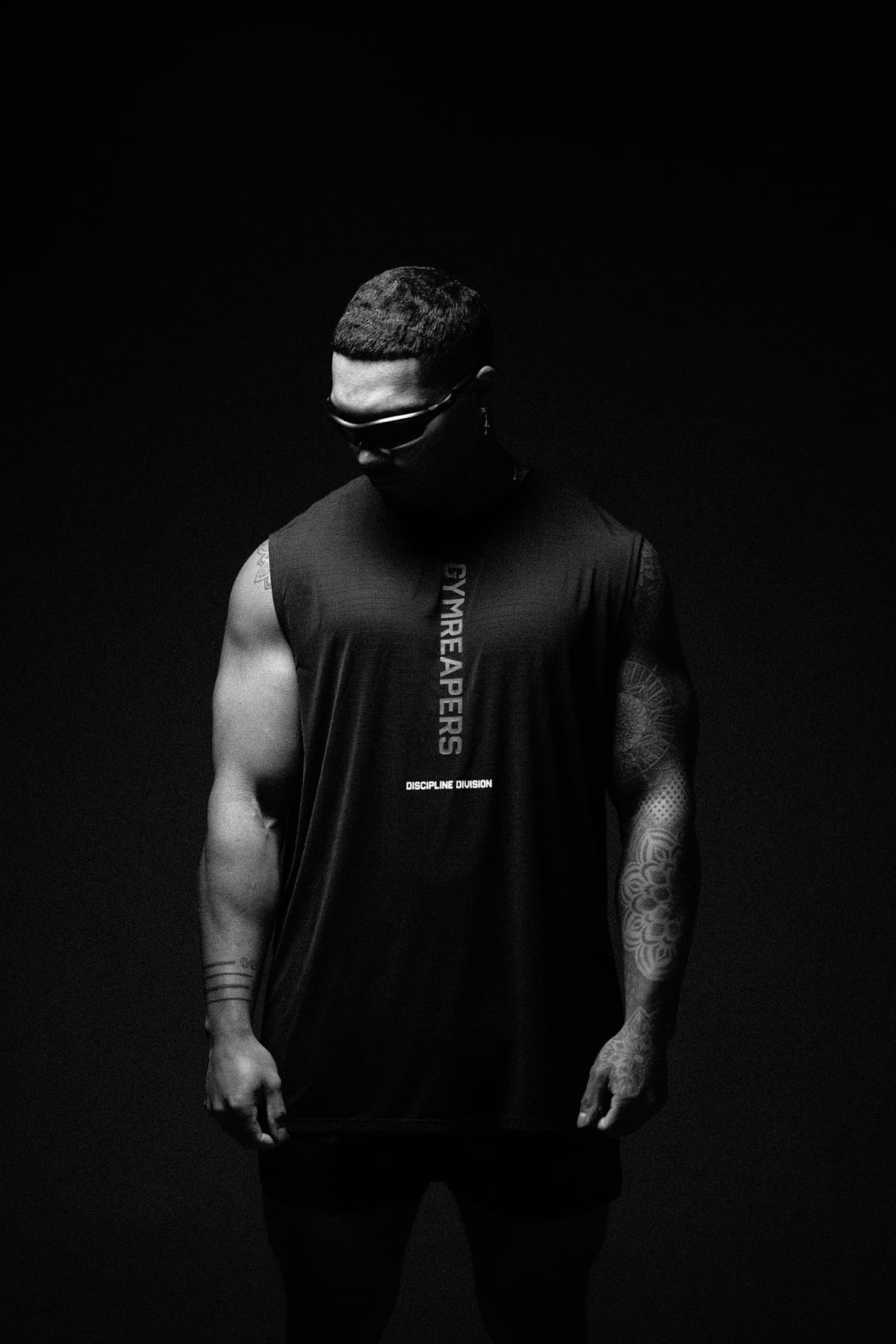
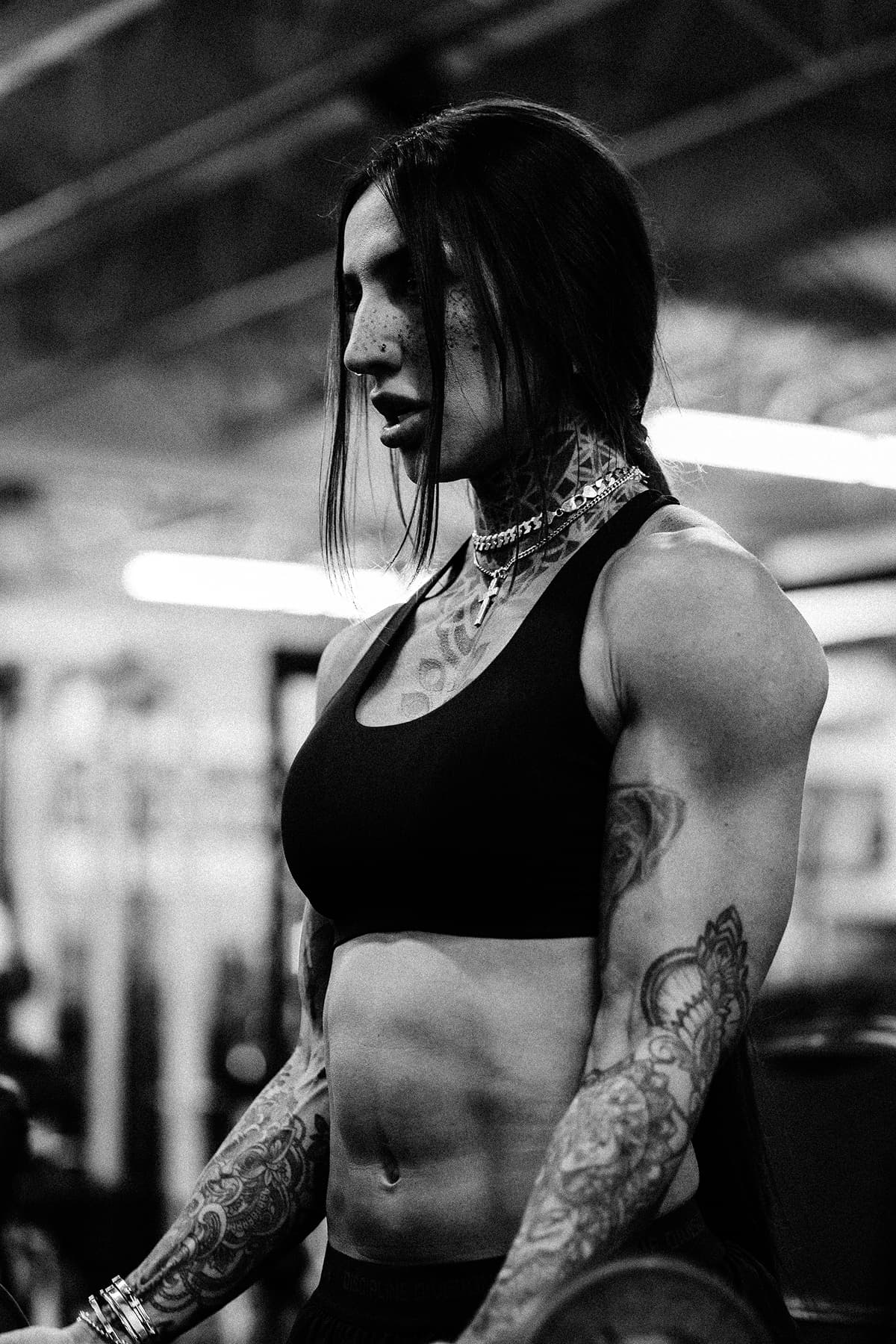
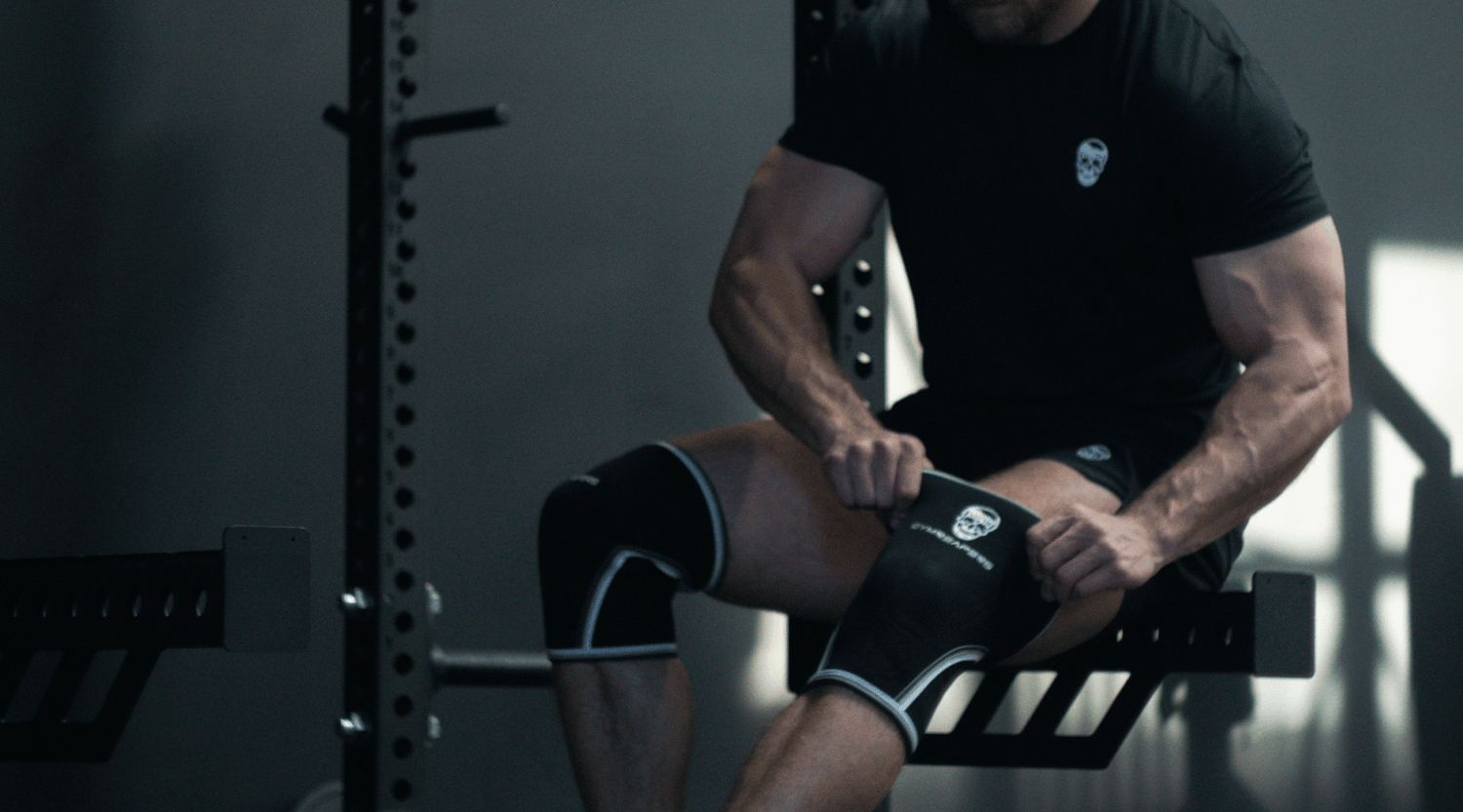

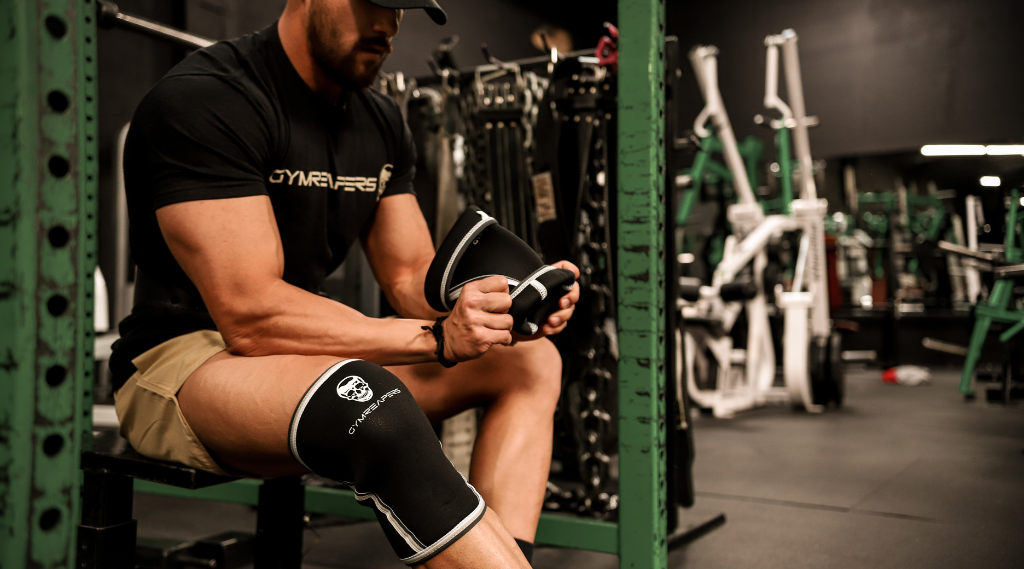
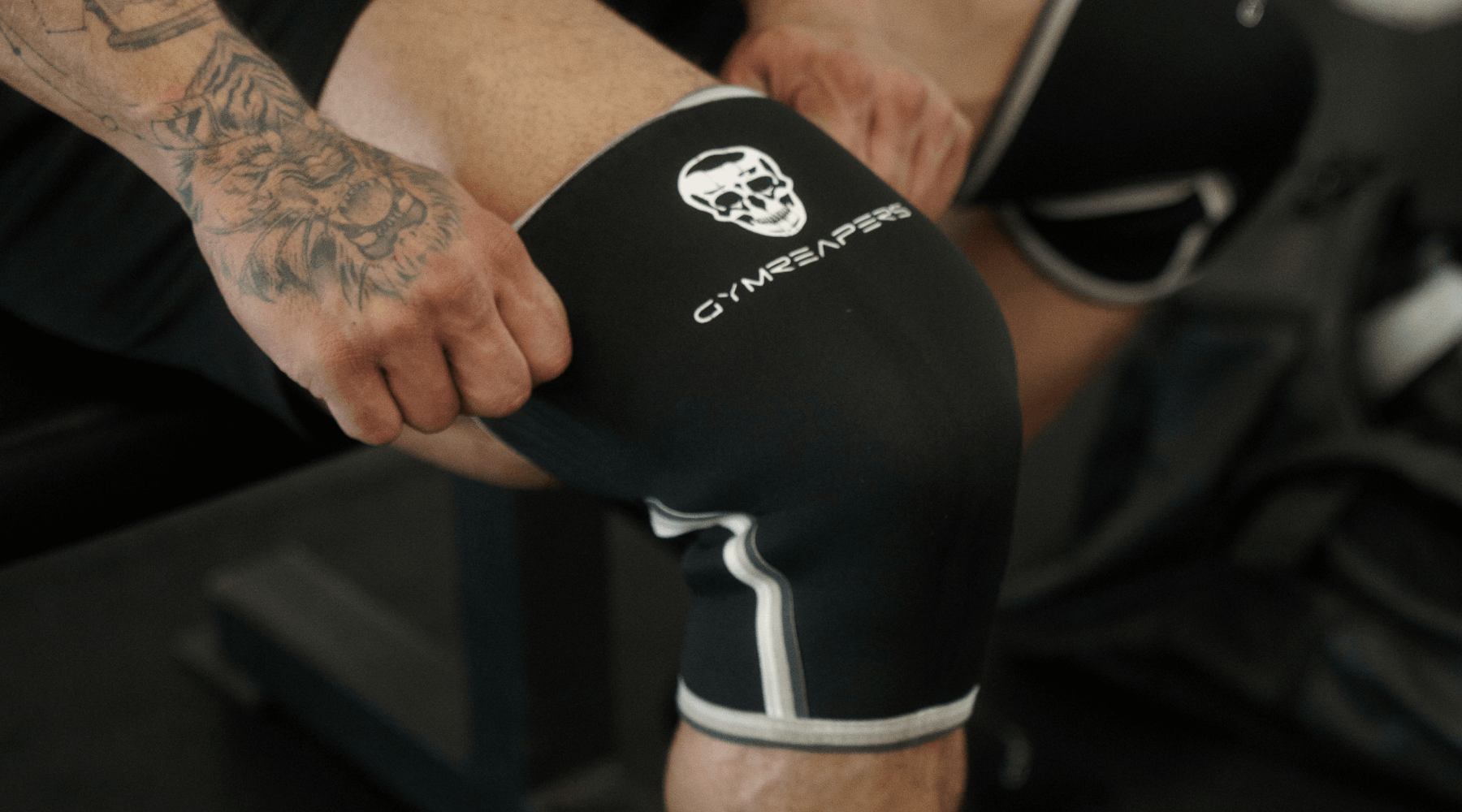
Leave a comment
All comments are moderated before being published.
This site is protected by hCaptcha and the hCaptcha Privacy Policy and Terms of Service apply.